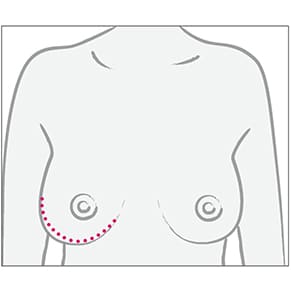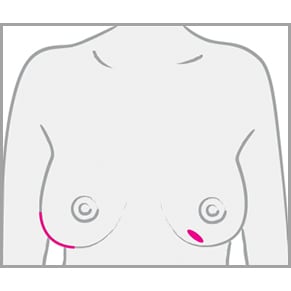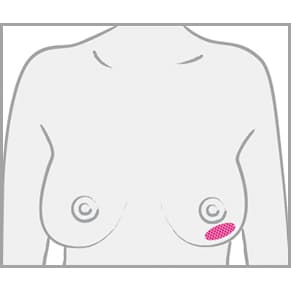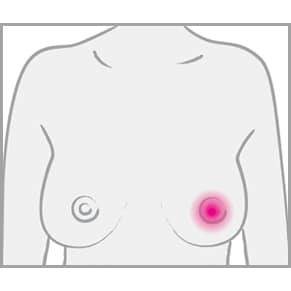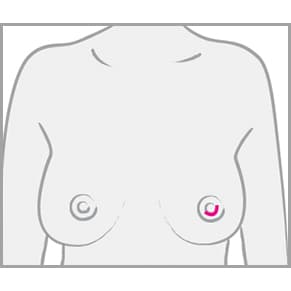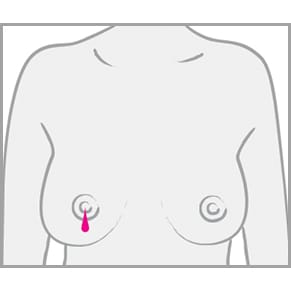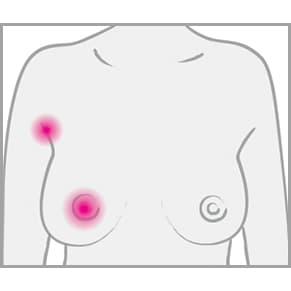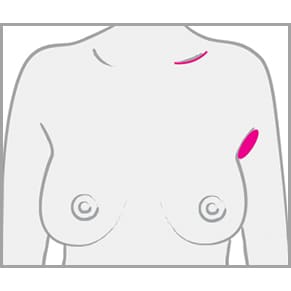How should I check my breasts for signs of breast cancer?
*The advice provided here is based on that of Breast Cancer Now’s Clinical Nurse specialists.
There is no special way to check your breasts. Everyone’s breasts look and feel different. Whatever your age, size or shape, it’s important to be breast aware. Getting to know how your breasts look and feel, for instance when you are in the bath or shower or getting dressed, will help you know what is normal for you. You will then be more confident about noticing any unusual changes and reporting them to your GP (local doctor).
Remember to check all parts of your breasts regularly, your armpits and up to your collarbone. While most breast cancers occur in women over the age of 50, it’s recommended that women of all ages are breast aware and get into the habit of regularly checking.
Some of the symptoms and signs of breast cancer include:
What should I do if I notice a change?
If you notice a change in your breasts, contact your GP, either by calling your GP surgery or visiting your GP surgery website to find out what to do. Most breast changes are normal or due to a benign (not cancer) breast condition, but it’s important to find out what’s causing the change by contacting your GP as soon as you can.

Dr Zoe Williams (pictured above), GP & Supporter of The Estée Lauder Companies’ Breast Cancer Campaign 2020, comments:
“Breast cancer can affect women and men, and there are many different symptoms to look out for, not just lumps. If you notice any unusual changes to your breasts, it’s important you still visit your GP as soon as possible – please don’t put off getting checked because of the pandemic. We must talk to each other too – even if it’s not face-to-face, we need to spread the word and encourage our friends and loved ones to check their breasts regularly. It’s time to unite, because together we can move forward in our mission to end breast cancer.”
For further information about the charity or the campaign, please visit breastcancernow.org or elcompanies.co.uk/breastcancercampaign

